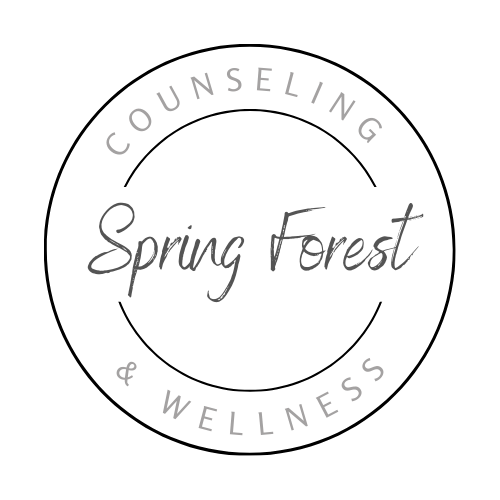At Spring Forest Counseling, we specialize in cognitive behavioral therapy, or CBT therapy, a proven method to help individuals navigate negative thinking patterns, depression, and stress. Our team believes in curating an actionable plan of therapy to meet your unique needs, creating a path toward emotional balance and mental well-being. Whether you're seeking relief from anxiety or struggling to manage stress, cognitive behavioral therapy (CBT) offers tools and strategies that can bring hope and healing.
What Is Cognitive Behavioral Therapy
 Cognitive Behavioral Therapy, or CBT, is a structured form of psychotherapy that focuses on identifying and changing negative thought patterns that influence emotions and behaviors. CBT is effective for a wide range of conditions, from mental health disorders, to physical syndromes.
Cognitive Behavioral Therapy, or CBT, is a structured form of psychotherapy that focuses on identifying and changing negative thought patterns that influence emotions and behaviors. CBT is effective for a wide range of conditions, from mental health disorders, to physical syndromes.
CBT helps you recognize the connection between your thoughts, emotions, and actions, offering a pragmatic approach to emotional challenges. It emphasizes solutions and equips individuals with personalized techniques to shift negative perspectives into constructive and healthier ones.
Frequently Asked Questions About Cognitive Behavioral Therapy
While cognitive behavioral therapy is effective for many, its success depends on the individual’s active participation. Commitment to the process is essential for achieving positively reinforced goals. At Spring Forest Counseling, we adapt our methods to best suit your unique needs.
Conditions That May Improve from CBT
Cognitive Behavioral Therapy or CBT therapy addresses common struggles and mental health challenges, providing relief and clarity for those who feel overwhelmed or stuck. CBT is effective for a wide range of conditions, including:
How Cognitive Behavioral Therapy Can Benefit You
CBT addresses common struggles and mental health challenges, providing relief and clarity to those who feel overwhelmed or stuck. Many individuals seek CBT therapy to manage and understand harmful negative thought cycles, learn coping skills to deal with unregulated stress or compulsions, and to treat underlying mental health problems that can lead to substance abuse or other disorders. By breaking the cycle of these disruptive thoughts and behaviors, CBT empowers you to regain control over your emotional health.
Our Approach to CBT
At Spring Forest Counseling, our therapists use evidence-based methods to help clients understand their issues, identify negative thought patterns, and implement changes that promote positive well-being. Sessions focus on creating a supportive and non-judgmental environment where individuals feel safe to explore their challenges and progress toward their goals.
Benefits of CBT at Spring Forest Counseling
Improved Psychological Health: Our sessions guide individuals in addressing underlying issues, promoting mental clarity, and encouraging emotional strength. We focus on empowering clients to achieve emotional balance and build a foundation for long-term mental well-being.
Developing Healthy Coping Skills: We help clients manage stress and navigate chronic illness by introducing effective coping strategies and stimulate adaptability. At Spring Forest Counseling, our customized approach ensures clients feel supported every step of the way.
Treating Mental Illness When Medication Isn’t an Option: Our therapists provide an empowering alternative to medication, using therapeutic techniques to address mental health challenges safely and effectively. We work to create a comprehensive care plan dedicated to the needs of each individual.
Why Choose Spring Forest Counseling for CBT?
Spring Forest Counseling is dedicated to providing compassionate, inclusive care that meets the highest standards of therapy. Our therapists are specialized in cognitive behavioral therapy (CBT), drawing on years of experience to guide you toward healing. We will work closely with you to create a supportive growth network while committing to delivering a safe space where everyone feels valued and validated.
How to Get Started with Cognitive Behavioral Therapy
Getting started with Cognitive Behavioral Therapy at Spring Forest Counseling is simple. Begin by scheduling an initial consultation, where we’ll discuss your goals and needs to determine the best approach. During the intake process, we gather information to personalize your therapy plan and answer any questions you may have. We offer both virtual and in-person sessions, providing flexibility and accessibility to meet your preferences.
